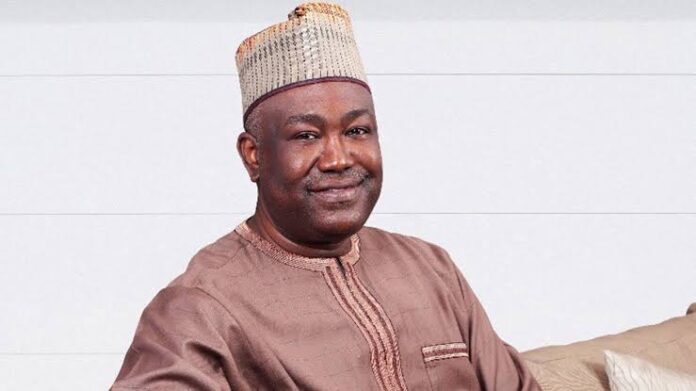Nigeria Better Off United — Olawepo
Olalekan Adebayo
POLITICS DIGEST – The presidential candidate of the Peoples Trust in the 2019 general elections, Gbenga Olawepo-Hashim, has said despite the increasingly frustrating realities in the country, a united Nigeria still remained the best alternative.
He appealed to all patriotic citizens to unite and forestall what he called the tempting campaign to break up Nigeria.
Olawepo-Hashim made his position known in an interview with journalists in Abuja, on Tuesday.
He said, “The truth must be told that despite the increasingly frustrating realities in Nigeria, a united Nigeria still remains our best alternative.
“Separatist advocacies are always ever seductive during moment of crisis but they never deliver good results afterwards.
“Ask the people of Southern Sudan. After about 30 years’ war they seceded from Sudan, they are still embroiled in factional wars among their leaders.
“Despite their oil wealth, their people are still savouring in poverty and the GDP of their economy is lower than that of Ogun State.”
Read Also:
Olawepo-Hashim argued that ethnic or regional homogeneity of a state did not necessarily guarantee peace.
He cited an instance of countries like Somalia a predominantly Muslim country with one language but embroiled in unending war for over 30 years.
He also cited Ireland which he said was just trying to recover from internal division, where a predominantly Christian country has been divided along denominational lines of Catholics and Protestants.
While arguing that separatism and division did not bring justice, the politician said only good governance, around policies and fear of God could ensure justice in the polity.
He said, “The founding fathers of our Republic in the Lancaster conference of 1957/58, agreed on a Nigerian state which is indivisible and should exist in perpetuity.
“Any group of persons who claim otherwise must have their positions re-examined because they are at variance with solid historical records.
“I quite agree that there is frustration in the land as a result of the problems which over-centralization of powers in the hands of the Federal Government has caused since the unfortunate military coup of 1966.”
Source: Punch
















